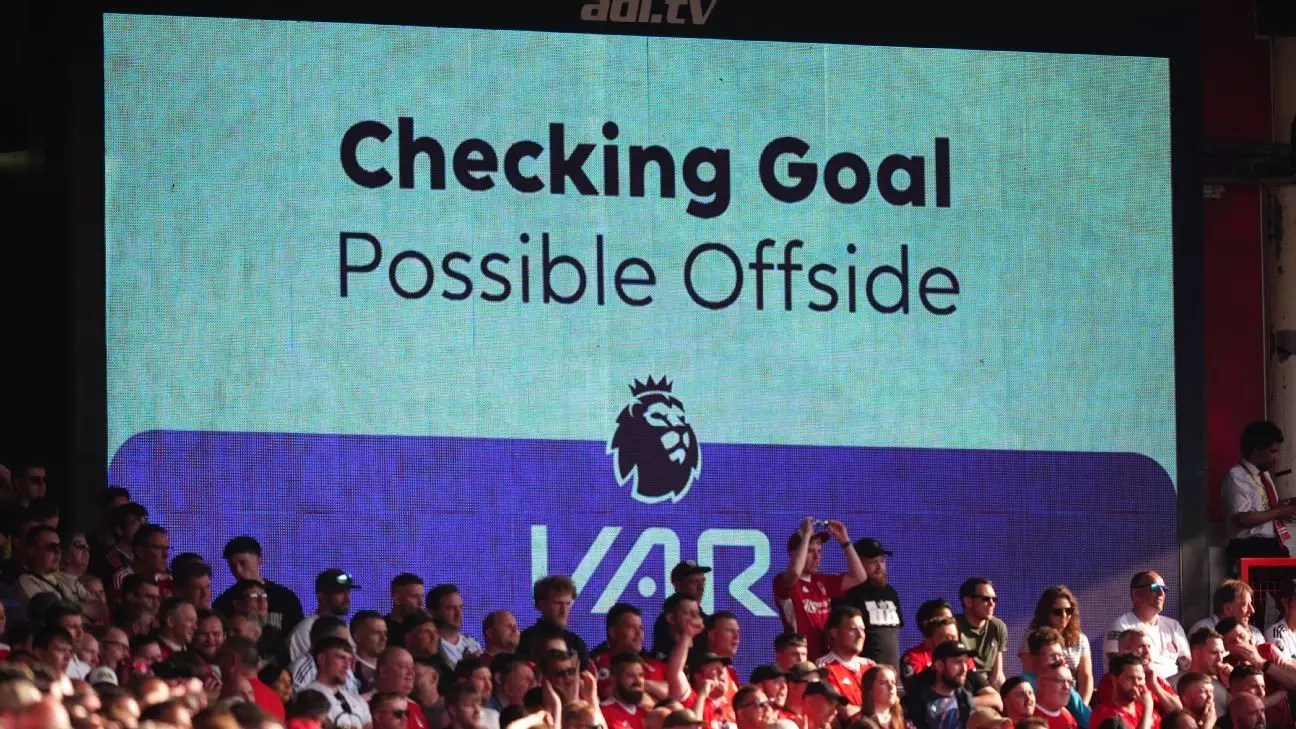Nottingham Forest has found itself at the center of controversy after receiving a hefty fine of £750,000 ($979,526) from the English Football Association (FA) as a consequence of a social media post that questioned the integrity of match officials. This incident, which followed a crucial match against Everton on April 21, underscores the complexity and tension surrounding the intersection of sports professionalism, social media conduct, and the perceived bias in officiating, particularly in high-stakes situations.
The posting emerged as a reaction to a disappointing 2-0 defeat that left Forest entrenched in a relegation battle. In an age where social media serves as a primary avenue for fan engagement and club communications, Forest’s decision to publicly criticize video assistant referee Stuart Attwell raised eyebrows, transforming what may have been a moment of frustration into a substantial penalty. The club’s assertion that the sanction feels “wholly disproportionate” demonstrates the underlying tensions in how football clubs navigate the punitive measures imposed by governing bodies.
Overseeing the discourse surrounding this incident, the FA’s decision to impose a fine was couched within the parameters of FA Rule E3.1, aimed at maintaining the integrity of match officials and preventing any insinuation of bias. The rationale behind this regulation is signaled by the need to uphold public confidence in the integrity of the sport, something that can easily become compromised in heated exchanges or rebuttals such as the one Forest engaged in.
Nottingham Forest’s optics in this matter are critical. Their post, which expressed discontent with what they termed “three extremely poor decisions” made by match officials, appeared to question Attwell’s impartiality and sparked a debate about whether such expressions could unjustly tarnish the reputation of officials. The club emphasized that their comments did not suggest bias or malfeasance, positioning their anger within the context of seeking accountability from the referee community.
This situation captures the ethos of professional football where emotions run high, particularly when a club is engaged in a relegation fight. The repercussions of decisions made on the pitch can have lasting implications, not only for immediate real-time performance but also for the financial and operational stability of clubs involved in relegation battles. The scrutiny intensifies during such critical matches, as Forest’s manager, Nuno Espirito Santo, indicated by articulating his bewilderment at the refereeing decisions made against his team.
Forest’s grievances particularly targeted Everton’s Ashley Young, alleging significant officiating oversights that could have materially influenced their chances in the match. Clubs experiencing the dual pressures of competitive performance and relegation fears often resort to expressions of frustration; however, when those expressions manifest publicly, they risk inciting swift punitive reactions from authoritative bodies such as the FA.
Beyond the immediate financial penalty, this episode raises essential questions about how clubs can express dissatisfaction without crossing a line into impropriety as defined by governing bodies. The reliance on social media as both a communication tool and a means of expressing collective sentiment from clubs and fans introduces a complex layer to traditional debate surrounding officiating decisions.
Forest is positioned amid a broader narrative that has seen numerous clubs increasingly vocal about officiating standards in English football, driven by advancements in technology and heightened awareness among players and fans. The mere presence of former referee Mark Clattenburg as a consultant within the club during this period illustrates that Nottingham Forest’s approach stems not only from a place of indignation but also an informed understanding of officiating nuances.
Moving forward, Nottingham Forest has signaled intentions to appeal against the imposed fine, which suggests that the club is eager to challenge not only the individual sanction but also the wider principles governing social media commentary. This strategic approach provides the club with a defined avenue to address their frustrations and promote dialogue regarding officiating standards, ultimately seeking to safeguard their interests.
The case of Nottingham Forest underscores the delicate balance clubs must strike when addressing officiating errors publicly. It serves as a reminder that the landscape of football is continually evolving, interjecting complex discussions about accountability, expression, and the overarching aim of preserving the integrity of the sport. As the club progresses with its appeal, all eyes will remain on the implications this incident will have on the relationship between clubs, officials, and the governing bodies that oversee the beautiful game.


Leave a Reply